When I need a hierarchal (parent-child) relationship, I typically use the Include statement in my EF query.
Example:
DbContext.Customers.Include("Projects");
This is fine, but the Customers and Projects entities always brings back all the columns.
I know that the below query will bring back specific columns in the parent table, but I'm also trying to bring back only specific columns in the child table. If I use the intellisense on the Projects it is obviously a collection and does not give specific properties to select.
from c in Customers
let Projects = c.Projects.Where (p => p.Notes != null)
where Projects.Any()
select new
{
c.UserName,
Projects
}
I tried refining the query to the below code, but as you can see, the Projects entity is a child entity of the Customers and therefore, does not have a specific column to select in the query. It obviously is a collection.
Is there a way to bring back just specific columns in each of the entities when using an Include in your query?
Note that my YeagerTechDB.ViewModels.Customers model is made up of all columns that reside in the Customer and Project entities.
public List<YeagerTechDB.ViewModels.Customers> GetCustomerProjects()
{
try
{
using (YeagerTech DbContext = new YeagerTech())
{
var customer = DbContext.Customers.Include("Projects").Select(s =>
new YeagerTechDB.ViewModels.Customers()
{
CustomerID = s.CustomerID,
ProjectID = s.ProjectID,
UserName = s.UserName,
Name = s.Projects.,
});
return customer.ToList();
}
}
catch (Exception ex)
{
throw ex;
}
}
ANSWER #1 FOR 1 CHILD ENTITY
from c in Customers
let Projects = c.Projects.Where (p => p.Notes != null)
where Projects.Any()
select new
{
c.UserName,
Projects
}
ANSWER #2 FOR 2 CHILD ENTITIES
from c in Customers
let highValueP =
from p in c.Projects
where p.Quote != null
select new { p.ProjectID, p.Name, p.Quote }
where highValueP.Any()
from p in Projects
let highValuet =
from t in p.TimeTrackings
where t.Notes != null
select new { t.ProjectID, t.Notes }
where highValuet.Any()
select new
{
c.CustomerID,
Projects = highValueP,
TimeTrackings = highValuet
}
Edit #3
